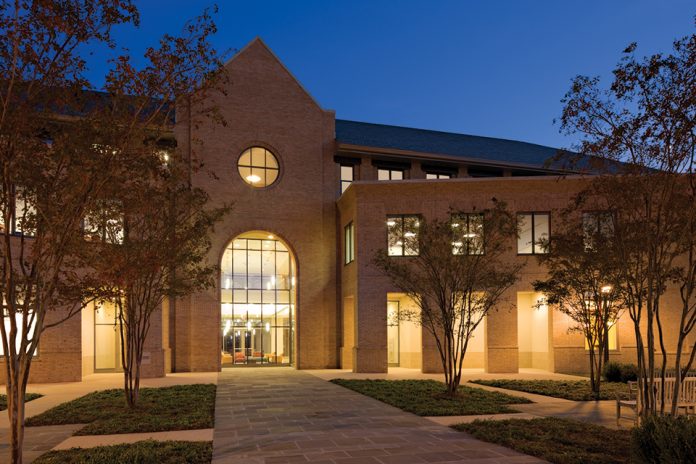At the start of her academic career at the College of William and Mary, Alexandra Harris ’21 had no intentions of pursuing a teaching career. However, after taking a class through the College’s Washington Center, Harris stumbled into her passion for educational equity. Now, with the creation of the educational studies minor, Harris has found ways to integrate this passion into her coursework at the College.
Recently created by the College’s School of Education, the educational studies minor is designed to provide students with an avenue to engage with the foundations of educational systems. This discipline focuses on the intersection of schooling and politics, as well as the influence of race, gender and class on education equity.
Reflecting on her courses and professors, Harris appreciated how the School of Education honed her skills as a scholar and communicator.
“Everybody wants to go into college and get a job and have a degree, of course, and I do as well,” Harris said. “But at the same time, a big part of what college is, is that it’s about good conversations and building oneself as a scholar, and a communicator and a critical thinker.”
Harris also pointed out the practical benefits of pursuing an educational studies minor — research opportunities that laid a solid groundwork for a career in education.
“I was able to conduct research through professors I met from the School of Ed while taking classes in the program,” Harris said. “Through the program, I was able to meet people that gave me research opportunities and worked with me to build my resume and get some research experience.”
A few months from graduation, Harris plans to work at a school to gain a foothold in the sector before pursuing education research full-time.
Harris’s career path is common among students in the program, according to professor and program director Jamel Donnor.
“Some students, after taking a number of courses in the minor, do decide that they want to be teachers,” Donnor said. “Others typically want to go on to graduate school … or law school. We found that many of the students typically fall into the latter camp where they want to … focus on policy or public policy in general.”
Donnor collaborated with colleagues to design the course to explore the myriad of issues public schools face. This includes focusing on broad topics spanning from racial segregation to school bullying.
“We have a robust conversation where we look at issues around class, sexual identity, race … white privilege,” Donnor said. “And then as the semester winds down, we really tend to focus on how do we become anti-racist, as a way to promote a more equitable and just society.”
“We have a robust conversation where we look at issues around class, sexual identity, race … white privilege,” Donnor said. “And then as the semester winds down, we really tend to focus on how do we become anti-racist, as a way to promote a more equitable and just society.”
The department already has plans to expand the minor into a major and introduce more courses related to the legacy of Jim Crow and the rise of standardized testing practices.
Another priority of the department is attracting students with a wide variety of backgrounds, interests and career aspirations. Donnor is optimistic about achieving these goals, noting that the School of Education has hired new and younger scholars with diverse knowledge and familiarity with cutting-edge technology, such as Geographic Information Systems.
Zaria Hardy ’21 is another student receiving a minor in educational studies alongside her sociology major. Her COLL 150 course on bias diversity in children’s literature sparked her interest in the field, and subsequent meetings with her professors solidified her decision to declare the minor.
Hardy described how this class, which was taught by Donnor, emphasized open communication and created a welcoming environment to discuss issues and characteristics of the subject.
“One thing I love beyond the curriculum itself was the structure of this course,” Hardy said. “Every day, we would start with a check-in to create a safe space for people to want to discuss the actual material. … He does a really good job of making sure you want to be there.”
“One thing I love beyond the curriculum itself was the structure of this course,” Hardy said. “Every day, we would start with a check-in to create a safe space for people to want to discuss the actual material. … He does a really good job of making sure you want to be there.”
Aside from compulsory courses, the educational studies minor requires an experiential learning component to gain hands-on experience. Hardy chose the Griffin School Partnership Program, volunteering for a kindergarten literacy class at the Matthew Whaley School in Williamsburg.
Volunteering at the school during the COVID-19 pandemic posed unexpected challenges but having the chance to craft close connections with her students made the experience rewarding.
“You really build a relationship with them,” said Hardy. “They’re just so happy to see you.”
With teaching experience under her belt, Hardy has applied to a master’s program for clinical health and school counseling.
“As an individual, I feel like the system itself requires so much changing reform that one individual alone cannot do it,” Hardy said. “But I do believe wholeheartedly that if each individual does their small part, we will begin to see different changes.”

